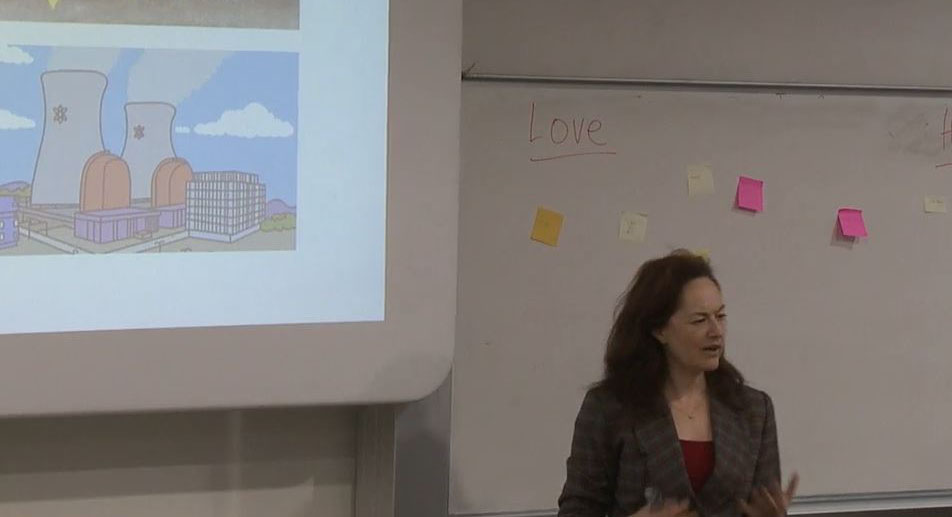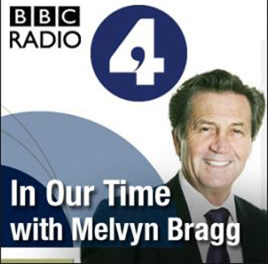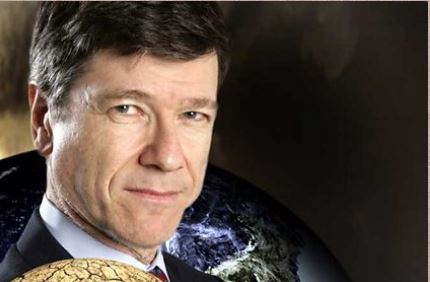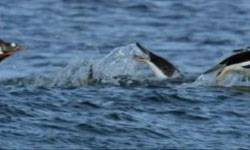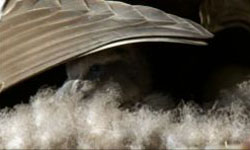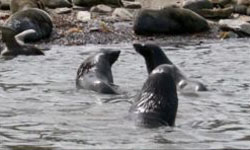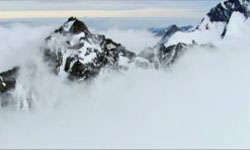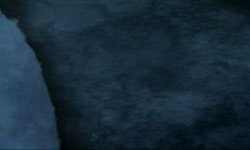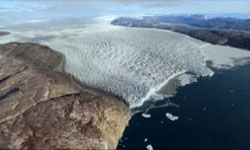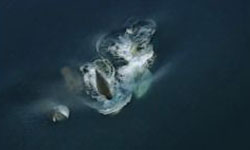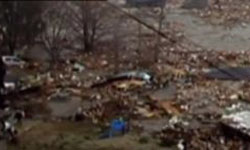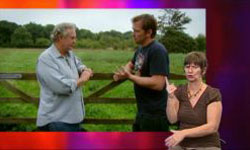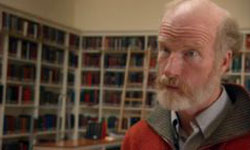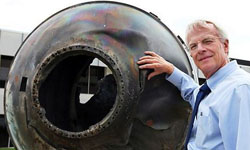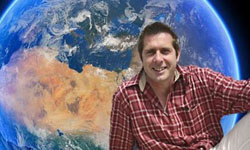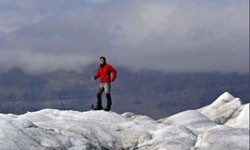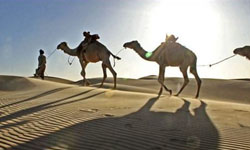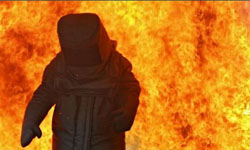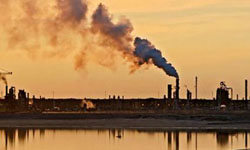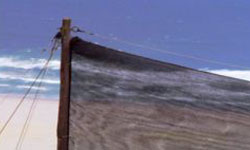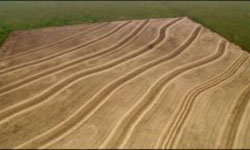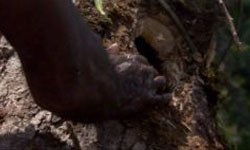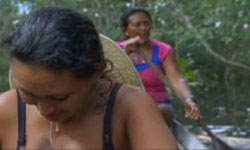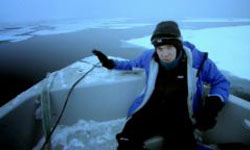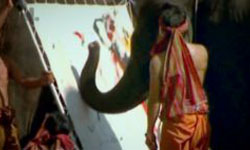Select one or more of these popular tags:
-
Current Attitudes to Carbon Capture and Storage
-
Dr Melanie Smallman , 2019
Science and Society Lecture 5th March 2019
Science and Society Lecture 5th March 2019
-
In Our Time - Climate Change
-
Melvyn Bragg
With Sir John Houghton, Co-Chair of the Inter-Governmental Panel on Climate Change - the United Nations’ global warming science committee; George Monbiot, environmentalist, journalist and Visiting Professor, Department of Philosophy, Bristol University.
With Sir John Houghton, Co-Chair of the Inter-Governmental Panel on Climate Change - the United Nations’ global warming science committee; George Monbiot, environmentalist, journalist and Visiting Professor, Department of Philosophy, Bristol University.
-
Planet Earth Under Threat
-
Gabrielle Walker
The final part of the series exploring how climate change is affecting the natural world.
The final part of the series exploring how climate change is affecting the natural world.
-
The Reith Lectures 2007 - 2 - Survival in the Anthropocene
-
Prof. Jeffrey Sachs
The biggest challenges that we face - climate change, alleviation of hunger, water stress, energy - are translated in the shadow of ignorance into "us versus them" problems, with only the weakest links to underlying scientific principles and technological options
The biggest challenges that we face - climate change, alleviation of hunger, water stress, energy - are translated in the shadow of ignorance into "us versus them" problems, with only the weakest links to underlying scientific principles and technological options
David Attenborough travels to the end of the earth, taking viewers on an extraordinary journey across the polar regions of our planet, North and South.
- TV-Recordings
- Environmental Studies
- English subtitles
- 60
David Attenborough travels to the end of the earth, taking viewers on an extraordinary journey across the polar regions of our planet, North and South.
Spring arrives in the polar regions, and the sun appears after an absence of five months; warmth and life return to these magical ice worlds - the greatest seasonal transformation on our planet is underway.
- TV-Recordings
- Environmental Studies
- English subtitles
- 60
Spring arrives in the polar regions, and the sun appears after an absence of five months; warmth and life return to these magical ice worlds - the greatest seasonal transformation on our planet is underway.
It is high summer in the polar regions, and the sun never sets. Vast hordes of summer visitors cram a lifetime of drama into one long, magical day; they must feed, fight and rear their young in this brief window of plenty.
- TV-Recordings
- Environmental Studies
- English subtitles
- 60
It is high summer in the polar regions, and the sun never sets. Vast hordes of summer visitors cram a lifetime of drama into one long, magical day; they must feed, fight and rear their young in this brief window of plenty.
For the animals in the polar regions, autumn means dramatic battles and epic journeys. Time is running out - the Arctic Ocean is freezing over and the sea ice is advancing at 2.5 miles per day around Antarctica.
- TV-Recordings
- Environmental Studies
- English subtitles
- 60
For the animals in the polar regions, autumn means dramatic battles and epic journeys. Time is running out - the Arctic Ocean is freezing over and the sea ice is advancing at 2.5 miles per day around Antarctica.
There is no greater test for life than winter, as temperatures plummet to 70 below and winds reach 200kph. Darkness and ice extend across the polar regions and only a few remarkable survivors gamble on remaining.
- TV-Recordings
- Environmental Studies
- English subtitles
- 60
There is no greater test for life than winter, as temperatures plummet to 70 below and winds reach 200kph. Darkness and ice extend across the polar regions and only a few remarkable survivors gamble on remaining.
David Attenborough reveals the vast wildnerness of the polar regions and their inhabitants. At the North Pole, the sun returns after six months of darkness.
- TV-Recordings
- Environmental Studies
- English subtitles
- 60
David Attenborough reveals the vast wildnerness of the polar regions and their inhabitants. At the North Pole, the sun returns after six months of darkness.
David Attenborough journeys to both polar regions to investigate what rising temperatures will mean for the people and wildlife that live there and for the rest of the planet.
- TV-Recordings
- Environmental Studies
- English subtitles
- 60
David Attenborough journeys to both polar regions to investigate what rising temperatures will mean for the people and wildlife that live there and for the rest of the planet.
This Frozen Planet special brings together the very best highlights of the series, taking viewers on a spectacular journey through the entire polar year - from the depths of winter to the melting world of the polar summer.
- TV-Recordings
- Environmental Studies
- English subtitles
- 60
This Frozen Planet special brings together the very best highlights of the series, taking viewers on a spectacular journey through the entire polar year - from the depths of winter to the melting world of the polar summer.
-
Grand Designs - The Cambridgeshire Eco Home
-
Kevin McCloud
Kelly and Masoko Neville set about building not just a spectacular oak frame and straw bale house, but a whole new way of life in the Cambridgeshire Fens.
- TV-Recordings
- Environmental Studies
- No subtitles
- 60
Kelly and Masoko Neville set about building not just a spectacular oak frame and straw bale house, but a whole new way of life in the Cambridgeshire Fens.
In the past few years we have shivered through two record-breaking cold winters and parts of the country have experienced intense droughts and torrential floods. It is a pattern that appears to be playing out across the globe.
- TV-Recordings
- Environmental Studies
- No subtitles
- 60
In the past few years we have shivered through two record-breaking cold winters and parts of the country have experienced intense droughts and torrential floods. It is a pattern that appears to be playing out across the globe.
Professor Iain Stewart examines the powerful geological forces that unleashed the devastating Japanese earthquake, and explores how the release of this power of the planet brought Japan to the brink of a nuclear meltdown.
- TV-Recordings
- Environmental Studies
- No subtitles
- 60
Professor Iain Stewart examines the powerful geological forces that unleashed the devastating Japanese earthquake, and explores how the release of this power of the planet brought Japan to the brink of a nuclear meltdown.
Jimmy Doherty, pig farmer, one-time scientist and poster-boy for sustainable food production is on a mission to find out if GM crops really can feed the world.
- TV-Recordings
- Environmental Studies
- No subtitles
- 59
Jimmy Doherty, pig farmer, one-time scientist and poster-boy for sustainable food production is on a mission to find out if GM crops really can feed the world.
The film also uncovers the disturbing story of how shipping noise is deafening whales and dolphins, affecting their survival in the future.
- TV-Recordings
- Environmental Studies
- English subtitles
- 60
The film also uncovers the disturbing story of how shipping noise is deafening whales and dolphins, affecting their survival in the future.
In 1992 the nuclear industry celebrated its 50th anniversary and the report on the accident at Chernobyl claimed there was no evidence of long term health effects. Within months, a team of western scientists presented a very different picture with evidence of an epidemic of thyroid cancers in local children.
- TV-Recordings
- Environmental Studies
- No subtitles
- 60
In 1992 the nuclear industry celebrated its 50th anniversary and the report on the accident at Chernobyl claimed there was no evidence of long term health effects. Within months, a team of western scientists presented a very different picture with evidence of an epidemic of thyroid cancers in local children.
In 2014, the International Space Station had to move three times to avoid lethal chunks of space debris and there is an increasing problem of satellites mysteriously breaking down. With first-hand accounts from astronauts and experts, Horizon reveals the scale of the problem of space junk.
- TV-Recordings
- Environmental Studies
- English subtitles
- 59
In 2014, the International Space Station had to move three times to avoid lethal chunks of space debris and there is an increasing problem of satellites mysteriously breaking down. With first-hand accounts from astronauts and experts, Horizon reveals the scale of the problem of space junk.
Professor Iain Stewart tells the epic story of how geology, geography and climate have influenced mankind.In this first episode, Iain explores the relationship between the deep Earth and the development of human civilisation. He visits an extraordinary crystal cave in Mexico, drops down a hole in the Iranian desert and crawls through seven-thousand-year-old tunnels in Israel.
- TV-Recordings
- Environmental Studies
- English subtitles
- 60
Professor Iain Stewart tells the epic story of how geology, geography and climate have influenced mankind.In this first episode, Iain explores the relationship between the deep Earth and the development of human civilisation. He visits an extraordinary crystal cave in Mexico, drops down a hole in the Iranian desert and crawls through seven-thousand-year-old tunnels in Israel.
Professor Iain Stewart continues his epic exploration of how the planet has shaped human history.This time he explores our complex relationship with water. Visiting spectacular locations in Iceland, the Middle East and India, Iain shows how control over water has been central to human existence.
- TV-Recordings
- Environmental Studies
- English subtitles
- 60
Professor Iain Stewart continues his epic exploration of how the planet has shaped human history.This time he explores our complex relationship with water. Visiting spectacular locations in Iceland, the Middle East and India, Iain shows how control over water has been central to human existence.
Professor Iain Stewart explores the story of our turbulent relationship with the wind.
- TV-Recordings
- Environmental Studies
- English subtitles
- 60
Professor Iain Stewart explores the story of our turbulent relationship with the wind.
Iain explores man\'s relationship with fire. He begins by embarking on an extraordinary encounter with this terrifying force of nature - a walk right through the heart of a raging fire.
- TV-Recordings
- Environmental Studies
- English subtitles
- 60
Iain explores man\'s relationship with fire. He begins by embarking on an extraordinary encounter with this terrifying force of nature - a walk right through the heart of a raging fire.
It\'s easy to think of the human impact on the planet as a negative one, but as this programme discovers, this isn\'t always the case.It is clear that humans have unprecedented control over many of the planet\'s geological cycles; the question is, how will the human race use this power?
- TV-Recordings
- Environmental Studies
- English subtitles
- 60
It\'s easy to think of the human impact on the planet as a negative one, but as this programme discovers, this isn\'t always the case.It is clear that humans have unprecedented control over many of the planet\'s geological cycles; the question is, how will the human race use this power?
We can survive for weeks without food, but only days without water: it is the essential element of life. Yet many millions of us live in parched deserts around the world. In the second episode of Human Planet, we discover how the eternal quest for water brings huge challenges - and ingenious solutions - in the driest places on Earth.
- TV-Recordings
- Environmental Studies
- No subtitles
- 60
We can survive for weeks without food, but only days without water: it is the essential element of life. Yet many millions of us live in parched deserts around the world. In the second episode of Human Planet, we discover how the eternal quest for water brings huge challenges - and ingenious solutions - in the driest places on Earth.
Grasslands feed the world. Over thousands of years, we humans have learned to grow grains on the grasslands and domesticate the creatures that live there. Our success has propelled our population to almost seven billion people.
- TV-Recordings
- Environmental Studies
- No subtitles
- 60
Grasslands feed the world. Over thousands of years, we humans have learned to grow grains on the grasslands and domesticate the creatures that live there. Our success has propelled our population to almost seven billion people.
The rainforest is home to more species of plants and animals than any other habitat on the planet. But for humans, life there is not as easy as it looks. Life in the trees requires great skill, ingenuity and sheer bravery.
- TV-Recordings
- Environmental Studies
- No subtitles
- 60
The rainforest is home to more species of plants and animals than any other habitat on the planet. But for humans, life there is not as easy as it looks. Life in the trees requires great skill, ingenuity and sheer bravery.
Rivers provide the essentials of life: fresh food and water. They often provide natural highways and enable us to live in just about every environment on Earth. But rivers can also flood, freeze or disappear altogether!
- TV-Recordings
- Environmental Studies
- No subtitles
- 60
Rivers provide the essentials of life: fresh food and water. They often provide natural highways and enable us to live in just about every environment on Earth. But rivers can also flood, freeze or disappear altogether!
-
Inside Nature's Giants: Polar Bear
-
Channel 4
The team join Inuit hunters and scientists studying polar bears off the coast of Greenland. Polar bears have become a symbol of climate change as their habitat is threatened. And, at the top of the food chain, they are especially vulnerable to physiological side effects from man-made pollutants.
- TV-Recordings
- Environmental Studies
- English subtitles
- 62
The team join Inuit hunters and scientists studying polar bears off the coast of Greenland. Polar bears have become a symbol of climate change as their habitat is threatened. And, at the top of the food chain, they are especially vulnerable to physiological side effects from man-made pollutants.
-
Inside Natures Giants - Elephant
-
Channel 4
This programme looks at how evolution has overcome the challenges of being as big as an elephant.
- TV-Recordings
- Environmental Studies
- No subtitles
- 48
This programme looks at how evolution has overcome the challenges of being as big as an elephant.

